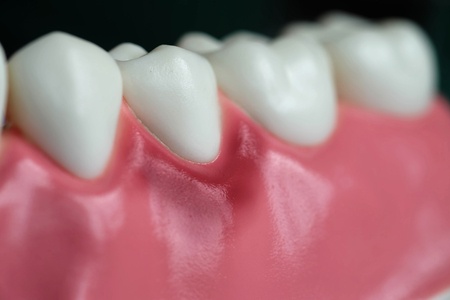
Gingivitis? Periodontal disease? What exactly are these? If you’ve ever experienced red swollen gums or bleeding with brushing, you may have the very beginning of gingivitis. Our mouths are full of bacteria. At all times. Harmful bacteria builds up in plaque if plaque is allowed to accumulate on teeth. As plaque builds up, both it and the bacteria contained in it creep down into the gum line, irritating and ultimately damaging the tissues that connect the teeth to the gums. Ouch! At this point the teeth are still firmly anchored in the gums. However, when gingivitis is not treated, it often develops into periodontitis, or periodontal disease. This is a more advanced form of gum disease. With periodontal disease, small pockets begin to form below the gum line and become infected. The bone, gums, and connective tissue can begin to break down, teeth can become loose, and may eventually have to be removed altogether.
Fortunately, gingivitis is easy to stop in its tracks! It’s often reversible by simple brushing and flossing daily, and regular dental visits to remove the plaque that we are unable to remove at home. Voila! Healthy teeth and gums!
If you are experiencing swollen, painful gums, or bleeding when you brush, it’s wise to see your dentist as soon as possible and let the doc determine if you have gingivitis, periodontitis, and where you may be in the process. Signs to look for are:
- Bleeding gums during or after brushing
- Red, swollen, or tender gums
- Bad breath or bad taste in the mouth that you can’t get rid of
- Visible tartar along gum lines
- Loose or shifting teeth
- Receding gums
- Pockets between teeth and gums
- Change in bite or the way the teeth fit together
It’s very common to have beginning symptoms of gingivitis and not even notice it. Regular visits to your dentist can prevent this. And even if you are experiencing more advanced gingivitis, or periodontitis, there are many treatment options available. Of course the sooner treatment is started, the greater the probability of curing the condition. For more information, contact your favorite dentist at LB Dental to schedule a screening.
